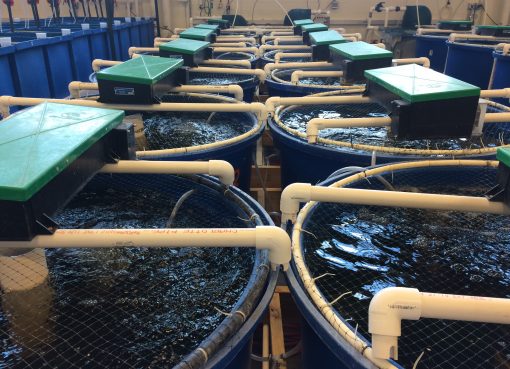The recent report of emergence of African Swine Fever (ASF) in six districts of upper Assam and in neighbouring Arunachal Pradesh has created panic among the pig farmers of the region. This is a threat not only for the pig population of the North-eastern Region but also for the pig industry of the entire country, as the disease can cause up to 90 to 100 per cent mortality among the affected herds. ASF is an exotic disease which has not been reported in the country so far. The disease was first reported during 1920s in Kenya and thereafter it spread to different parts of sub-Saharan Africa and West Africa. Later, it spread to Spain and Portugal, from where the disease was successfully eradicated in mid-1990s. During the last few years, ASF continued to spread in different countries of the European Union, primarily among the wild boar population; and in the month of August 2018, the disease was reported for the first time from China affecting large numbers of domestic pigs. Subsequently, reports of occurrence of the disease poured in from many other countries of Europe and Asia including Croatia, Bulgaria, Greece, Hungary, Latvia, Moldova, Poland, Romania, Russia, Serbia, Slovakia, Ukraine, Indonesia, North Korea, South Korea, Laos, Myanmar, Papua New Guinea, Philippines, Timor-Leste and Vietnam. As per the report of OIE, the World Organization for Animal Health, during the period from 10-29 April, 2020, a total of 742 new outbreaks were notified. The total number of ongoing ASF outbreaks worldwide during that period was 7,726 which included 3,440 outbreaks in Romania and 2,383 outbreaks in Vietnam. The current outbreak of the disease in Assam and Arunachal Pradesh is thought to have its origin in a neighbouring country from which it might have spread across the border through either carriage of carcass of animals by mighty Brahmaputra or other rivulets, or due to entry of some products of affected animals through the porous international border.
According to the latest reports, more that 16,000 pigs in 10 out of 33 districts of Assam have already died of the disease and the situation has almost terrorized the pig farmers of the state. After confirmation of the disease as African Swine Fever by the Bhopal-based National Institute of High Security Animal Diseases, the Government of Assam has already declared a ban on migration and trade of pig and its products in the affected districts.
Why ASF has been given so much of importance?
African Swine Fever is a disease against which there is no effective treatment or vaccine is available so far. Secondly, it causes almost 100 per cent morbidity among the susceptible swine population including domestic pigs and wild boars, although the susceptibility is restricted to swine only. The mortality among the affected swine may reach up to 90 to 100 per cent, particularly in per-acute and acute cases. Another important feature of the DNA virus causing ASF is that it can spread quickly from affected to susceptible animals by direct or indirect contact including via inanimate objects like bedding materials, feeds, utensils, handler’s clothes, shoes and the virus may even be carried by vehicles from one farm to the other. The virus is primarily transmitted by direct contact between infected and susceptible pigs, starting from the second day after infection through saliva as well as ocular and nasal discharges. The virus is shed after a few days post-infection via urine, faeces and semen. Aerosol transmission is also possible over short distance. It may also spread through ‘garbage feeding’ particularly when it is contaminated by some excretions or tissues of affected animals. Soft ticks belonging to Ornithodoros spp. can also serve as a vector for transmission of ASF. However, occurrence and involvement of ticks in the spread of ASF during the current outbreak in Assam is yet to be ascertained. An added problem in neutralizing the virus is due to its relative tolerance to high temperature (up to 60°C for 20 min), pH range (3.9 to 11.5) and common chemical disinfectants. The virus is susceptible to ether and chloroform, and can be inactivated by using 0.8% sodium hydroxide in 30 minutes, 2.3% hypochlorite in 30 minutes, and 0.3% formalin in 30 minutes. It remains viable in blood, faeces, and tissues for long periods, and especially survives for long in infected uncooked or undercooked pork products.
Suggested Strategies to Control
As no treatment or vaccine is available, the only option we have in order to control spread of the current outbreak further is to have strict measures of biosecurity and restriction of movement of pigs, products, farm equipment, feeds and any other materials from the affected herds to other susceptible herds. Let us first discuss about the suggested control measures to be adapted during the current outbreak of ASF in the state.
- Physical separation of the herd: In order to prevent a susceptible animal to come in contact with an infected one, it is necessary to isolate the infected animals. The affected firms with its surrounding areas within one kilometer radius, where confirmed positive cases have been detected, are needed to be declared as containment zones, and entry and exit of pigs, its products and other fomites as mentioned above have to be completely banned so that spread of the pathogen from the affected herd may be prevented.
- Stop introduction of new pigs into the herd: No new animals should be procured by any farmer in the affected districts for the time being; neither the farmers should allow exit of any animal from the farm premises. Not only in the affected districts, the farmers of other districts should also temporarily suspend their plan for procuring new animals to their farms and in case it is utmost necessary, animals may be obtained only from trusted and certified sources.
- Complete prohibition on trade of live pigs and pork: Markets are critical points for the spread of diseases including ASF. Sale of live pigs, pork and pork-products has been completely prohibited now in the affected districts. It is highly essential to prevent spread of the disease through direct and indirect contact. The district administration must ensure proper implementation of this government order particularly in the rural areas where these are sold in isolated pockets away from the usual market place and the consumers are usually unaware of the consequences of such illegal act.
- Prevention of entry of vehicles and other fomites, including clothing, footwear and equipment to the farm: African swine fever virus can survive in the environment for several days, especially when present in organic materials like faeces, urine, blood, feeds etc. The virus can be transmitted easily via contaminated clothing and shoes, equipment and vehicles. Therefore, the farmers should not allow any vehicle to enter to their farm premises and should allow only the essential persons like known attendants and that too after taking all precautions so that they do not carry infection from other affected farms to the susceptible animals of his farm. Before entry into the farm, the farmer and his workers need to dip their shoes in water mixed with disinfectants like potassium permanganate; hypochlorite etc. and they should also change their dress in the ante-room. Veterinarians and para-vets entering the farm to attend to the ailing animals should also take appropriate precautions so that they can rule out the possibility of transmission of infection through their clothes and equipment. People working in the pig farms should wear clothes and footwear which are exclusively used only when working in the stable and the same needs to be left in the stable after use. Moreover, the pig farmer and his workers should avoid visiting other farms for any purpose.
- Proper disposal of carcasses: Carcasses of pigs dying from the disease or those which have been culled during the stamping out operation should be disposed off either by incineration or burial at least 6 ft under the ground. Application of lime, urea or disinfectant over the carcass during burial is suggested to ensure destruction of the virus. Proper care needs to be taken during carriage of the dead animals and the carrying vehicle has to be thoroughly disinfected after the operation. The carcasses should never be thrown into the river and rivulets or into the jungle as that may facilitate spread of the virus.
- Prohibition of open range rearing of pigs: From the experiences of ASF outbreaks in other countries, it has been realized that pigs reared under the open range system of management where they are let loose to roam about in the villages during the day time are likely to be infected easily and they may pose the greatest threat to other susceptible pigs including those under intensive farming in a particular area. Therefore, at the face of an ASF outbreak, no animals should be allowed to loiter freely at any time and all such pigs must be kept confined in the stable.
While deciding about the control strategy against ASF, one cannot rule out the possibility of transmission of the disease from wild boars to domestic pigs and vice-versa. Therefore, preventive measures need to be undertaken to limit the contact of domestic pigs with wild boars particularly with the free-range animals during the night time. Fortunately, so far occurrence of ASF in the wild boards has not been reported in our state. However, if the disease spreads further in the affected districts and proper control measures are not followed, there is every possibility of the disease to get transmitted to the wild boars and that will certainly complicate the situation further, as control of the disease in wild population may be very difficult with meagre resources.
While we appreciate the prompt and timely response of the State Government to the current outbreak of ASF in six districts of the state and the decision to collect random samples from the affected areas within one kilometre radius from the epicentres for detection of infection, it is needless to mention that isolation of the ASF-positive animals and surveillance of infection in areas within 10 kilometre radius as announced by the concerned department recently may not be sufficient to control spread of this dreaded disease to fresh areas. As reported in the media, the current outbreak is limited to only a few areas in the affected districts and the total number of morbid animals as well as the mortality so far has been restricted to only a few thousand. As such, adoption of prompt diagnosis followed by stamping out of the positive animals by scientific culling may be the best method for control under the circumstances. Otherwise, if the disease in future spreads to newer areas and districts throughout the state, it would be almost impossible to control by any means. However, while adopting stamping out strategy, the government must ensure providing adequate compensation to the affected farmers as was done during the bird flu epidemic. The requisite infrastructure and manpower of the State Animal Husbandry and Veterinary Department also need to be strengthened further so as to enable the veterinarians to tackle the situation effectively.
At the same time, we also need to ensure sustainability of the pig industry in other unaffected districts of the state, as it has already suffered a great loss during the lockdown period. The concerned department must take appropriate steps to create awareness among the farmers about the African Swine Fever and the necessity of adopting biosecurity measures by the pig farmers to prevent infection. General awareness among the consumers also needs to be enhanced so as to avoid any misconception or an impact of rumour against consumption of pork during the outbreak, as the disease ASF is confined only to swine and cannot be transmitted to human.
Dr. Probodh Borah Professor & Head Department of Animal Biotechnology College of Veterinary Science Assam Agricultural University Khanapara, Guwahati-781022




